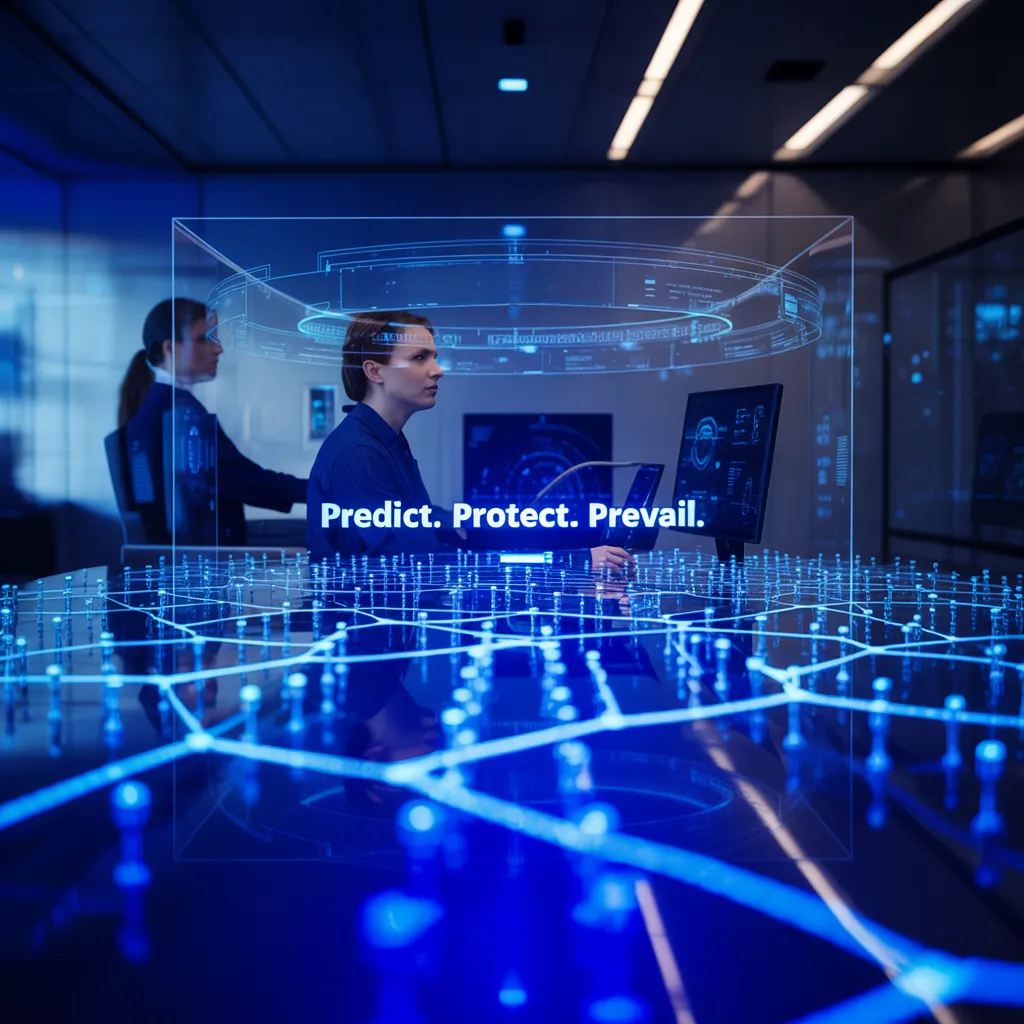
AI in Cybersecurity Risk Management: Predicting and Preventing Attacks Before They Happen

AI in Cybersecurity Risk Management: Predicting and Preventing Attacks Before They Happen
Cyber Attacks—The Silent Threat You Don’t See Coming
Let’s face it: cyberattacks are no longer a rare crisis — they’re a daily reality for organizations of all sizes. Whether it’s ransomware, phishing scams, or insider threats, the damage can be swift and severe: financial losses, lawsuits, regulatory penalties, and reputational harm.
For industries like law, healthcare, finance, and construction, where sensitive data is core to operations — confidential client files, patient records, financial transactions, or proprietary designs — the stakes are even higher.
Yet despite this reality, many businesses remain stuck in reactive cybersecurity models — responding to breaches after they happen.
🔒 But what if you could predict and prevent cyberattacks before they occur?
Thanks to advances in Artificial Intelligence (AI), that future is already here.
The Cybersecurity Chaos That Could Be Avoided
Imagine waking up to discover your law firm’s confidential files have been leaked. Or that patient data in your healthcare system has been compromised. Or that your construction firm’s project records have been held hostage by ransomware.
In all these cases, traditional security tools might detect the breach — but often too late to avoid operational disruption and reputational fallout.
That’s the problem with reactive defenses:
🚨 They respond only after damage has begun.
AI offers a better way — a proactive approach that predicts and prevents attacks before they unfold.
AI in Cybersecurity: The Future of Risk Management
AI brings a new level of sophistication to cybersecurity risk management by enabling continuous learning, prediction, and automated response.
Let’s break down how AI transforms cybersecurity into a forward-looking, risk-driven discipline:
1️. AI Predicts Threats Before They Happen
AI-powered systems can analyze vast amounts of security data to identify patterns that suggest an attack is imminent.
🔹 Example for legal firms:
AI can detect suspicious file access attempts at odd hours or from unfamiliar locations — long before any breach occurs.
🔹 In healthcare:
AI can flag unusual access to patient records, stopping data exfiltration before it escalates.
2️. AI Enhances Vulnerability Assessment and Management
Traditional vulnerability assessments are often periodic and manual — leaving organizations exposed between audits.
AI changes this by continuously scanning networks, databases, and endpoints for vulnerabilities, misconfigurations, and weak points.
🔹 In construction:
AI can identify insecure endpoints at remote job sites or flag outdated software before attackers exploit it.
🔹 In finance:
AI proactively checks systems for flaws that hackers could use to steal client funds or manipulate transactions.
3️. AI Automates Threat Response
Speed is everything during a cyberattack. Delays in human response can give attackers critical time to escalate.
AI can instantly act when an anomaly is detected:
Quarantining compromised devices
Blocking malicious IP addresses
Suspending suspicious accounts
🔹 Example in healthcare:
If AI detects abnormal download patterns in an electronic health records system, it can automatically isolate affected systems to prevent widespread data theft — while alerting the security team to investigate further.
4️. AI Learns and Adapts Over Time
Cybercriminal tactics evolve constantly. AI systems evolve too — learning from every incident, improving threat models, and adapting to new attack vectors.
🔹 Example for CPAs and attorneys:
AI can quickly learn to recognize advanced spear-phishing campaigns that target key personnel, identifying even subtle variations before they fool staff.
🔹 For construction firms:
AI can analyze evolving attack trends targeting IoT devices at job sites, enhancing defenses automatically as new risks emerge.
5️. AI Reduces the Strain on Human Resources
Many security teams are overwhelmed by the sheer volume of alerts and incident reports.
AI lightens this load by filtering out false positives and handling routine monitoring tasks — allowing human analysts to focus on strategic decisions.
🔹 Benefit for all industries:
AI improves efficiency and scalability, empowering your security teams to manage risk effectively without expanding headcount or sacrificing quality.
The Value of AI-Driven Cybersecurity for High-Risk Industries
✅ For law firms:
Protect attorney-client privilege and confidential files proactively.
✅ For healthcare providers:
Safeguard patient records while maintaining regulatory compliance (e.g., HIPAA).
✅ For financial institutions:
Ensure fraud prevention and protection of sensitive financial data.
✅ For construction firms:
Secure proprietary designs, project management platforms, and mobile devices across sites.
Stay Ahead of Cyber Threats with AI
Cyberattacks will continue to evolve — but so can your defenses.
AI-powered cybersecurity doesn’t just detect threats faster; it predicts them, prevents them, and gives your organization a critical edge in protecting sensitive data, operations, and reputation.
At Elliptic Systems, we specialize in helping businesses across law, healthcare, finance, and construction integrate AI-driven cybersecurity solutions to proactively manage risk.
Ready to take a proactive stance?
🔒 Don’t wait for a breach to happen.
👉 https://www.isaiforyou.com
and discover how AI can help your organization predict and prevent attacks before they happen.
